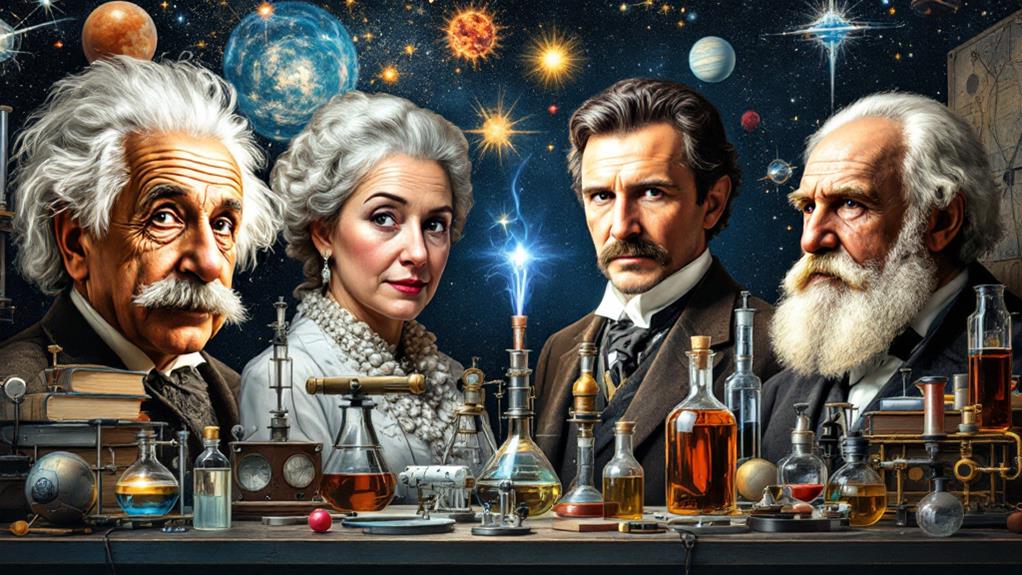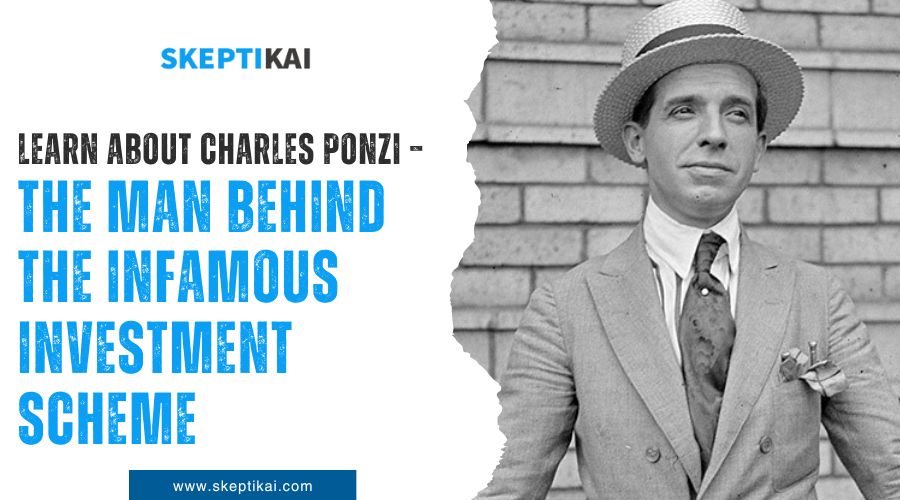Who Are the Famous Skeptics in History?

You'll encounter many famous skeptics throughout history who questioned the status quo and championed critical thinking. Ancient Greek philosophers like Socrates used questioning to investigate beliefs, while Pyrrho introduced Pyrrhonian skepticism. During the Renaissance, figures like Michel de Montaigne and Desiderius Erasmus promoted introspective thought and critiques of tradition. Enlightenment thinkers such as Voltaire, David Hume, and Immanuel Kant emphasized reason and empirical evidence. Modern skeptics like James Randi, Michael Shermer, and Richard Dawkins challenged claims and advocated for evidence-based reasoning. Uncover how these influential figures have shaped the way you think today.
Ancient Greek Philosophers
Among the many intriguing aspects of Ancient Greek philosophy, the role of skepticism holds a particularly important place. You'll find that Socratic questioning is a fundamental approach, emphasizing the importance of dialogue and inquiry. Socrates, a crucial figure, used this method to examine underlying beliefs and assumptions. By asking probing questions, he encouraged others to think critically and challenge accepted norms. This method reveals how skepticism can serve as a powerful tool for uncovering truth and promoting intellectual growth. Furthermore, skepticism in this instance is not about cynicism but about fostering open-mindedness and thoughtful inquiry, which aligns with the principles of critical thinking. Besides Socratic questioning, Pyrrhonian skepticism also emerged as a significant school of thought. Pyrrho, its founder, taught that because certainty is unattainable, suspending judgment about the truth of things is wise. You might see this as a way to achieve peace of mind, avoiding the stress of dogmatic beliefs. Pyrrhonian skepticism encourages you to remain open-minded and flexible, emphasizing the constant re-evaluation of beliefs considering new evidence or perspectives.
Both Socratic questioning and Pyrrhonian skepticism have left a lasting impact on the way we view knowledge and belief. By embracing skepticism, you can nurture a more thoughtful and reflective approach to understanding the world.
Renaissance Skeptics

The Renaissance age frequently witnessed a revival of skepticism that challenged established doctrines and encouraged independent thought. This period, driven by Renaissance humanism, emphasized the importance of questioning and re-evaluating traditional beliefs. People were no longer content to accept information at face value; instead, they began engaging in skeptical inquiry, examining the foundations of knowledge and belief. Skepticism during this time mirrored ancient skepticism, which also questioned the certainty of knowledge in metaphysics. One prominent figure during this time was Michel de Montaigne. His essays encouraged readers to question everything, emphasizing that human reason was fallible. Montaigne's work exemplified how Renaissance skeptics often sought to understand human nature through introspection and critical thought. Another influential skeptic was Desiderius Erasmus. He used his writings to critique the Church and other authorities, arguing for reform and a return to authentic Christian values. Erasmus's pursuit of knowledge through skeptical inquiry made him a leading figure in Renaissance humanism.
Enlightenment Thinkers

During the Enlightenment, skepticism took on a new dimension as thinkers began challenging traditional authorities and advocating for reason and empirical evidence. You see, this period was all about questioning the status quo and promoting rational inquiry. Enlightenment thinkers didn't just accept what they were told; they wanted proof, evidence, and logical reasoning. Here's a glimpse of how they influenced skepticism:
- Voltaire: Known for his sharp wit and criticism of the church and state, Voltaire emphasized the importance of freedom of thought and expression. He didn't shy away from using satire to highlight the absurdities of blind faith.
- David Hume: Hume questioned the nature of human understanding. He argued that our beliefs should be grounded in empirical evidence and that we shouldn't just rely on tradition or dogma. His work paved the way for modern skepticism.
- Immanuel Kant: Although Kant had a complex relationship with skepticism, he challenged the limits of human knowledge. He argued that while empirical evidence is essential, we must also recognize the limitations of our perceptions.
These thinkers showed you how skepticism, when combined with rational inquiry, can lead to profound shifts in understanding and progress.
Modern Scientific Skeptics

Scientific skepticism thrives today as a critical force challenging unfounded claims and pseudoscience. You might wonder how modern scientific skeptics make such a significant impact. They employ the scientific method, a systematic approach that involves observation, experimentation, and analysis to test the validity of claims. By doing so, they guarantee that only evidence-based outcomes are reached.
In embracing critical thinking, modern skeptics ask tough questions, assess evidence logically, and recognize biases. This approach helps them differentiate between genuine scientific findings and those that lack empirical support. By focusing on facts and rejecting anecdotal evidence, they protect the public from misleading information.
Consider the work of scientists and skeptics who debunk myths surrounding vaccines, climate change, and alternative medicine. They rely on peer-reviewed research to provide clarity in a world full of misinformation. These skeptics emphasize the importance of education, urging you to question sources and seek reliable evidence.
Contemporary Influential Skeptics

In the current world of rapid information exchange, a few prominent skeptics stand out as lighthouses of rationality and evidence-based thinking. These individuals use their critical thinking skills to question assumptions and debunk misinformation. They inspire others to follow suit, encouraging a culture of skepticism and inquiry. Here are three contemporary influential skeptics you should know about:
- James Randi: Known for his charismatic challenges to paranormal claims, Randi used evidence-based reasoning to expose charlatans. His famous "Million Dollar Challenge" offered a substantial reward to anyone who could demonstrate supernatural abilities under controlled conditions, promoting scientific inquiry and skepticism.
- Michael Shermer: As the founding publisher of Skeptic magazine, Shermer has dedicated his career to examining myths and pseudoscience. Through his books and lectures, he teaches the value of critical thinking skills and how to apply them to real-world scenarios, making complex ideas accessible to a broad audience.
- Richard Dawkins: A biologist and author, Dawkins applies his evidence-based reasoning to challenge religious and supernatural claims. His work, particularly "The God Delusion," has sparked global discussions on rationalism, encouraging readers to question deeply held beliefs with a skeptical eye.
These skeptics remind you that questioning is crucial for understanding the world.



